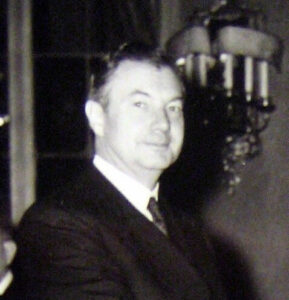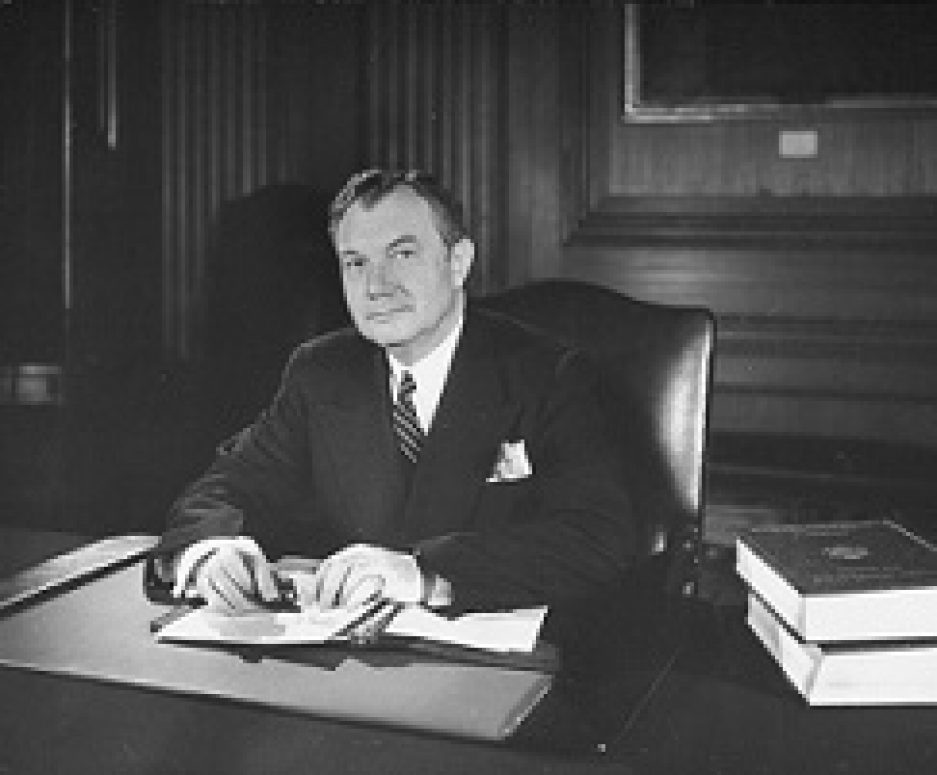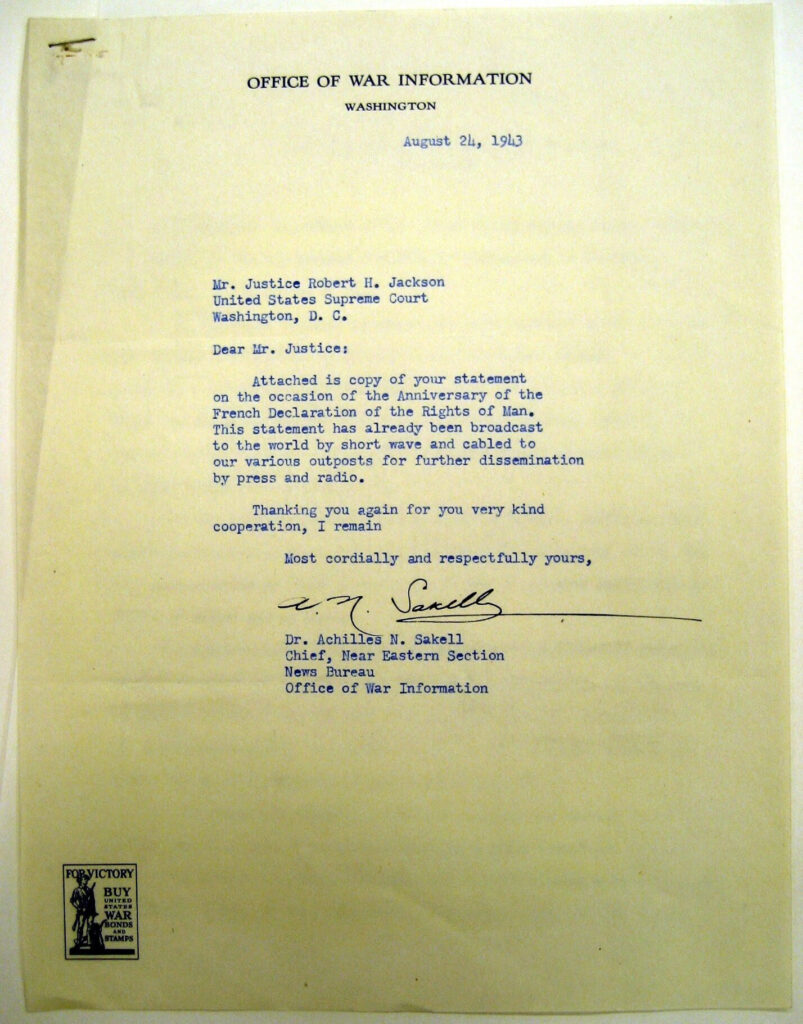In France in 1789, the revolutionaries who had overthrown the absolute monarchy created a Constituent Assembly. It decided to draft a new constitution, beginning with a declaration of principles.
The Assembly produced this document, The Declaration of the Rights of Man and of the Citizen, in August 1789. It was inspired by the 1776 American Declaration of Independence. The French Declaration was a powerful statement of every person’s natural rights. It was a claim of human moral entitlement. (For the text, click here.)
The French Declaration of the Rights of Man has always been meaningful to people who seek freedom from real and threatened oppression. This was true in the United States in 1791, when France’s Declaration became a model for the first ten amendments to the Constitution of the U.S.—the U.S. Bill of Rights. And to point to another very consequential time, this was true during World War II, when Nazi Germany occupied much of France and most of Europe, perpetrated atrocities against people there, and waged war against the Allied nations, including the U.S.
In summer 1943, Robert H. Jackson was completing his second year as an associate justice of the Supreme Court of the U.S. He had served previously for seven years in high positions in President Franklin D. Roosevelt’s administration, culminating in service as U.S. Attorney General. Justice Jackson was one of the U.S.’s leading government officials. He was renowned as one of his country’s top law and government voices. It makes sense that when the anniversary of the French Declaration of the Rights of Man came around that year, the U.S. Office of War Information (“OWI”) asked Jackson to write a public statement.

In August 1943, Justice Jackson wrote and sent the following text to OWI:
Today is the one hundred fifty-fourth anniversary of the French Declaration of the Rights of Man.
This important document is one of the most important developments in the history of the growth of democratic and republican ideas. It was intended as a preamble to the Constitution, which was completed two years later and was to ratify the Revolution—a revolution which shattered the outworn eighteen century system, uprooted the remnants of feudalism and prepared Europe for the modern age.
“Men are born and remain free and equal in rights”, proclaimed this famous declaration of human rights; “Law is the expression of the general will”; “The free communication of ideas and opinions is one of the most precious of the rights of man.” And so forth.
Through principles like these the Revolution had vindicated the rights of man; it stood for liberty, enlightenment, and brotherhood. To the best spirits of Europe it was the dawn of a dazzling new age. Definitely, it was a forward movement. Gradually this great human movement forward has been built up by a multitude of progressive elements.
A few years ago, however, a backward movement was started in some parts of the world. A wave of totalitarianism for a while threatened to sweep away every progressive accomplishment. Now totalitarianism stands exposed before the world: It is a resuscitation of medievalism. Hitler offers mankind a step toward the old Stone Age.
Hitler believes in amassing riches by violence and looting, not by scientific advances; in fettering the human mind, not in liberating and enlarging it. Indeed, Nazism has shown itself implacably hostile to the process of liberation. In Germany and occupied countries liberal books have been burned. Radios have been limited to a narrow field. Newspapers are heavily censored and regimented. The cinema became an instrument of chauvinist propaganda. Thus the world of the mind and spirit has been narrowed to an iron prison house. Indeed, if the world were sentenced to follow Nazism, it would move backward on its orbit.
But mankind will move forward and upward. Already, it can be seen plainly, the wave of reaction headed by Hitler is ebbing. Before long it will disappear. And the progressive spirit that gave birth to the French Declaration of Rights will live on.
OWI transmitted Justice Jackson’s statement around the world for publication and broadcast.
One year later, in August 1944, the Allies, including French forces, liberated France from Nazi occupation.
A year after that, in 1945, the Allies defeated Nazi Germany and Justice Jackson began to work, including regularly in Paris, as the U.S. chief prosecutor of the principal surviving Nazi leaders.
And in 1946, the International Military Tribunal at Nuremberg convicted many of those defendants of committing war crimes. Their crimes against international law included violating the rights of man.

